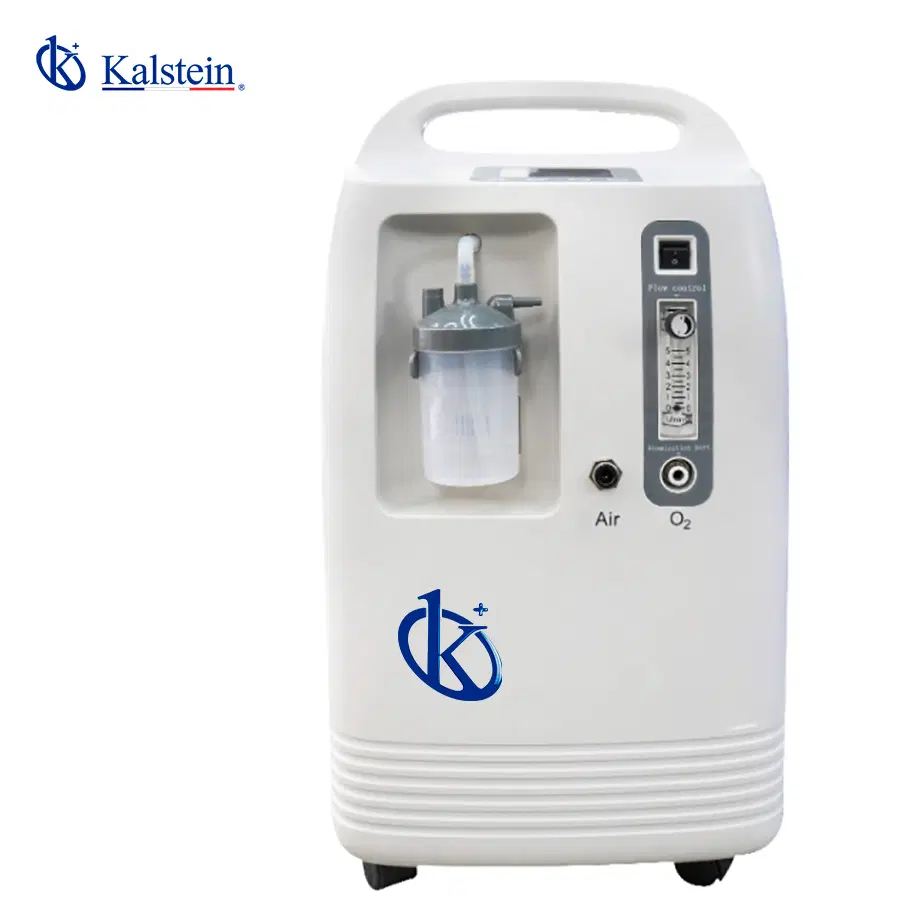In recent years, the field of stationary oxygen has seen significant innovations. These advances are designed to improve the efficiency, ease of use, and portability of these essential devices. One of the most notable innovations is the integration of smart technology that allows for continuous monitoring and automatic adjustments of oxygen levels according to the patient’s needs.
Wi-Fi connectivity is another innovative feature being implemented in stationary oxygen concentrators. This allows devices to send data to mobile applications and remote health systems, providing medical professionals with real-time information about the patient’s condition. These innovations not only improve the quality of life for users but also optimize medical care, facilitating more personalized and efficient attention.
Developments in Medical Devices: New Horizons for Stationary Oxygen
The medical device sector is constantly evolving, and stationary oxygen concentrators are no exception. Recent developments include improvements in the durability of materials, which extend the life of the devices and reduce the need for frequent replacements. This is not only beneficial for users but also represents significant cost savings in the long run.
Additionally, new, more compact, and lighter designs are being introduced, making stationary oxygen concentrators more manageable and easier to transport. These developments align with the general trend in the medical industry to make devices more accessible and comfortable for patients, facilitating their use at home and enhancing their autonomy.
The Importance of Energy Efficiency in Stationary Oxygen Concentrators
One of the key aspects addressed in the latest trends in stationary oxygen concentrators is energy efficiency.
The implementation of advanced energy management systems has allowed concentrators to operate more quietly and efficiently. This is particularly important for patients who need to use the device at night, as it minimizes disruptions and improves sleep quality. Energy efficiency is becoming a standard in the industry, aligning with global sustainability and resource-saving goals.
Advanced Technology for Better Oxygen Management
Advanced technology is revolutionizing the way stationary oxygen concentrators administer and deliver oxygen. Modern devices are equipped with high-precision sensors that continuously monitor the patient’s blood oxygen levels, automatically adjusting the output to maintain optimal levels.
Moreover, many units now include intuitive touchscreens and easy-to-use interfaces that allow users and caregivers to adjust settings effortlessly. These improvements not only make the devices more accessible but also enhance patient safety by ensuring they always receive the correct amount of oxygen.
Safety and Reliability in Modern Oxygen Concentrators
Safety and reliability are top priorities in the design of stationary oxygen concentrators. Medical device developers are implementing advanced safety features, such as power failure alarms and oxygen flow sensors, that alert users and caregivers to any potential issues.
Additionally, modern concentrators are constructed with durable materials and high-quality components that minimize the risk of mechanical failures. These features ensure that patients can rely on their devices for a constant and safe supply of oxygen, which is crucial for those with chronic respiratory conditions.
Future Trends in the Development of Stationary Oxygen Concentrators
Looking to the future, it is clear that trends in the development of stationary oxygen concentrators will continue to focus on innovation and improving patient quality of life.
Furthermore, increased collaboration between medical device manufacturers and software developers is anticipated to create integrated health ecosystems that facilitate better monitoring and management of respiratory conditions. These trends will not only transform the stationary oxygen concentrator market but also set new standards for care and well-being for patients globally.
How the Stationary Oxygen Concentrator Aligns with Current Trends?
The stationary oxygen concentrator is well-positioned to align with current trends in medical devices due to its ability to incorporate advanced technology and enhance user experience. These devices are rapidly adopting smart connectivity, enabling effective remote monitoring and seamless integration with mobile applications and telemedicine platforms.
Moreover, the improvement in energy efficiency and durability of these concentrators directly responds to the sustainability and economic demands of patients and healthcare systems. By staying at the forefront of innovation, stationary oxygen concentrators not only improve the quality of life for current users but also prepare to meet future respiratory care needs.
Conclusion
The stationary oxygen concentrator has come a long way from its beginnings, adopting innovative technologies and advanced developments that improve its efficiency, safety, and ease of use. With current trends focused on smart connectivity, energy efficiency, and durability, these devices are well-positioned to continue being a vital source of support for those requiring oxygen therapy at home.
By aligning with the latest trends in medical equipment and devices, stationary oxygen concentrators will continue to play a crucial role in maintaining the health and well-being of patients worldwide.
If you’re seeking a blend of innovation and quality, you’ve come to the right place. At https://kalstein.de/category-product/medical-line/oxygen-concentrator/ we offer you the luxury to explore our exclusive catalog of laboratory equipment. We manufacture each piece of equipment with a level of excellence. Our intuitive and agile online shopping channels are designed for your convenience, ensuring the friendliest prices. Don’t hesitate any longer, we bring science to life, it’s time to become part of our community. https://kalstein.de/

